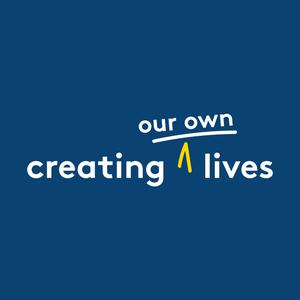
Creating Our Own Lives
On Being Studios
We’re called to create a better world, but what about the more immediate task of creating our own lives? Inspired by a quote of Thomas Merton, host Lily Percy asks people to think through how they shape their lives. And hopefully by listening, we learn how to create our own.
- 16 minutes 32 seconds[S2] Hari Kondabolu: Comedy Is Therapeutic but Not Therapy
![[S2] Hari Kondabolu: Comedy Is Therapeutic but Not Therapy](https://onbeing.org/wp-content/uploads/2015/06/1500x1500_OnBeing_EpisodeArtwork.jpg?resize=320,320)
“My mom has a very dark sense of humor. I think that’s how I learned how to recycle pain.”
Hari Kondabolu is not your average stand-up comedian. He has a Masters in Human Rights and worked as an immigrants rights organizer — all of which you hear in his writing. His jokes simultaneously bring about discomfort and a nod of the head, without sounding preachy. He uses comedy as a coping mechanism for addressing complex issues of race, identity, and ethnicity post 9/11.
Visit onbeing.com/series/creating-our-own-lives for other episodes and more.
8 June 2017, 11:30 am - 17 minutes 25 seconds[S2] Sam Sanders: If I Can Laugh With You, I Can See You
“I cannot tell you how many times laughter has connected me with all different kinds of people throughout the country, of all kinds of political persuasions.”
When politics and comedy mix they can become mean, sarcastic, and divisive. Reporter and NPR Politics Podcast co-host Sam Sanders thoughtfully avoids this. As an African American and Pentecostal growing up near a military base in San Antonio, he was surrounded by people from different class, political, and cultural backgrounds. This helped him develop his thoughtful voice, his objectivity, and his ability to connect to others through jokes and laughter.
8 June 2017, 11:29 am - 14 minutes 44 seconds[S2] Terry McMillan: Humor Is a Form of Hope
“I don’t think that humor is evasive at all. It’s how we protect our hearts from just bleeding to death.”
Bestselling author Terry McMillan knows how to write funny yet complex female characters: Savannah in Waiting to Exhale, Stella in Stella’s Got Her Groove Back, and Georgia in her latest novel, I Almost Forgot About You. Whether they’re wrestling with heartbreak, grief, or loneliness, these women use humor to face whatever life throws at them. But these characters are simply taking the lead from their creator, who sees humor as a way of “protect[ing] our hearts from just bleeding to death.”
8 June 2017, 11:28 am - 13 minutes 47 seconds[S2] Amichai Lau-Lavie: Deep Laughter in the Place of the Deepest Pain
“Humor is always about ‘as if.’ And it just relaxes everybody. We’re going to laugh.”
Transparent creator Jill Soloway describes Amichai Lau-Lavie as “a God-optional, patriarchy-toppling, Jewish modern mind.” He uses humor to connect — to himself and others, his family, his sexual identity, and his spiritual life. The rabbi says the Jewish people have endured because of their ability to laugh at themselves and, in this way, laugh at the world.
8 June 2017, 11:27 am - 15 minutes 39 seconds[S2] Heidi N. Moore: When It Comes to Finance and Comedy, It’s All About Patterns
“What makes humor is pattern recognition. Finance is very helpful on that front because there are a lot of patterns that keep repeating themselves.”
Heidi N. Moore uses humor as a tool for understanding the world of finance. She tells stories about the people behind the money — why they do what they do and how they do it, and has done so for many years as a reporter for The Wall Street Journal, The Guardian, and Marketplace. By humanizing something as intimidating as finance, she helps people actually understand it.
8 June 2017, 11:26 am - 21 minutes 37 seconds[S2] Daniel José Older: How We Love Is by Roasting Each Other
“Humor reminds me a lot of magic, in that there’s no way to quite replicate it. There’s a power to that”
The humor in Daniel José Older’s writing makes his characters come alive. Whether in the playful banter of books like Shadowshaper, in his spiritual practice of Lucumí, or alchemizing tragedy into comedy as a paramedic in New York City, he sees humor as key to finding a storytelling voice.
8 June 2017, 11:25 am - 18 minutes 58 seconds[S2] Alexis Wilkinson: Disarming People with Laughter
“Humor gives me release. Sometimes there’s just too much tension and you have to let it go. Laughter is such a great natural physical response to do that.”
Humor has been a tool for success for Alexis Wilkinson, and not just a tool for survival. She writes for Brooklyn Nine-Nine and previously wrote for VEEP, a job that she got right out of college, at the age of 22. And, before that, she made headlines as the first African-American woman to be president of Harvard Lampoon magazine.
8 June 2017, 11:24 am - 16 minutes 19 seconds[S2] Maureen Craig: This Strange, Peculiar Family I Call Mine
“Humor establishes new ground for parents and kids to relate on that isn’t just parent-kid.”
For Maureen Craig, humor is central to how she understands and relates to her family. As a parent, a wife, a daughter, and a brand strategy executive, she believes that there’s always something you can make a joke about.
8 June 2017, 11:23 am - 16 minutes 57 seconds[S2] Lalo Alcaraz: We Have Entered the Satire Dimension
“I use humor as a way to let our community know that we’re not invisible, at least not to us.”
Chicano cartoonist and writer Lalo Alcaraz explores his dual identity by creating characters and places where he can be seen. He’s known as a writer for the Fox sitcom Bordertown and for La Cucaracha, the first nationally syndicated, politically themed, Latino daily comic strip. Humor as a tool for survival is embodied in his very being.
8 June 2017, 11:22 am - 15 minutes 51 seconds[S2] Emily Nagoski: Laughter Is Like Orgasm
“When you are helpless with true laughter, it’s like orgasm. Your body gets taken over. If it didn’t feel so good, you’d think there was something wrong.”
Sex scientist, researcher, and romance novelist Emily Nagoski sees humor as a way to understand and appreciate sex and our bodies. She says that belly laughs and rough housing play completely shift our physiology. This is what makes her romance characters so relatable — there’s laughter in their foreplay and sex.
8 June 2017, 11:21 am - 20 minutes 20 seconds[S2] Lindy West: Comedy Helps Us Love Our Bodies
“When everything feels horrible, what tiny detail can we seize on and laugh about.”
Writer Lindy West talks about being fat and being a feminist with an honesty and vulnerability infused with humor. Titles of her essays and books — “My wedding was perfect — and I was fat as hell the whole time” or Shrill: Notes from a Loud Woman — get at both the laughter and pain of her journey to body positivity, with poignant insights into the destructive power of comedy.
8 June 2017, 11:20 am - More Episodes? Get the App
Your feedback is valuable to us. Should you encounter any bugs, glitches, lack of functionality or other problems, please email us on [email protected] or join Moon.FM Telegram Group where you can talk directly to the dev team who are happy to answer any queries.
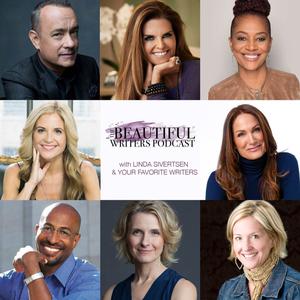 Beautiful Writers Podcast
Beautiful Writers Podcast
 xzyxzy_BP_demo
xzyxzy_BP_demo
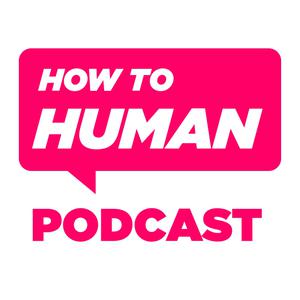 How To Human with Sam Lamott
How To Human with Sam Lamott
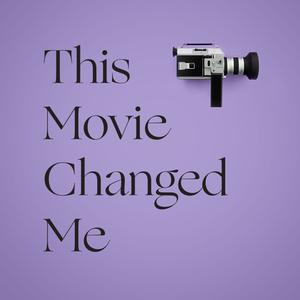 This Movie Changed Me
This Movie Changed Me
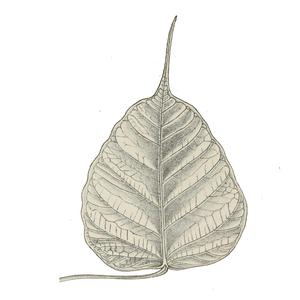 Dharma Seed - dharmaseed.org: dharma talks and meditation instruction
Dharma Seed - dharmaseed.org: dharma talks and meditation instruction
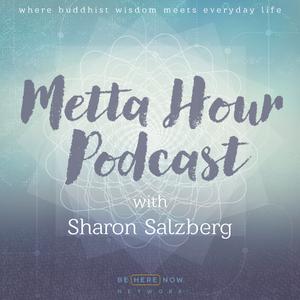 Metta Hour with Sharon Salzberg
Metta Hour with Sharon Salzberg